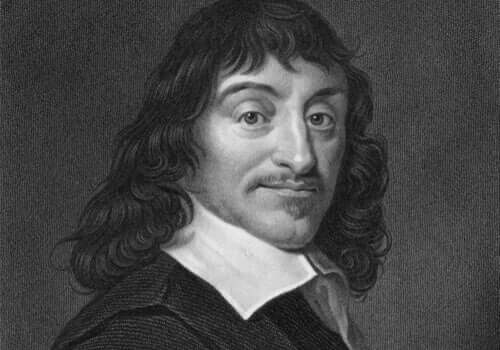René Descartes’ biography shows that he is not only the father of modern philosophy, but also the most influential thinker of rationalism, who like other geniuses had many interests.
As a result, he dabbed in different fields, such as mathematics, geometry, morality, philosophy and even art, whose main value was to have confronted scholastic philosophy, spread in its time and full of prejudices.
- Today.
- The debate on the authenticity of his ideas persists.
- According to some authors.
- There is an extreme coincidence between what René Descartes proposes and the work of the 16th-century Spanish humanist Gómez Pereira.
In addition, the thesis on the method is notoriously similar to those of Francisco Sánchez, nicknamed “the skeptic”.
“Free yourself from all the impressions of the senses and imagination, and trust only in reason. ” – René Descartes-
For these coincidences and others in relation to the work of Augustine of Hippo and Avicena, he was accused of plagiarism. The debate persists today, and there is sufficient evidence to indicate that some of Descartes’ work is very similar to that of his predecessors.
However, the French philosopher has also made contributions that can be considered fully authentic.
René Descartes was born in Touraine, France, on 31 May 1596. His father was a councillor in the Parliament of Brittany and his mother died shortly after his year.
Since then, Descartes has been entrusted to his grandmother and a nanny with which he has always maintained close ties, they were the first years of his life.
Your father started calling you “little philosopher” because he asked about everything. As a child he was in poor health, at age 11 he began studying at a Jesuit college and distinguished himself as an intelligent and profound student, he had a special facility for mathematics and physics.
At the age of 18 he studied medicine and law at the University of Poitiers in France, at the age of 22 he moved to holland and created a deep bond with the country, which lasted until his death.
René Descartes was a tireless traveller and this facet began to manifest itself with this first great journey.
Between 1618 and 1648, René Descartes lived his most fruitful intellectual stage as a researcher and creator; on several occasions he mentioned that he had foreboding or revealing dreams, which he interpreted as messages from heaven.
He believes that such messages prepare him to be the author of an important intellectual work. After these dreams, on one occasion, he laid the foundations for analytical geometry; in another, the idea of Euler’s polyedr theory.
It quickly became a reference for the intellectuals of the time. His home in France has become a meeting place for scientists and philosophers.
There is not much information about his personal life, we know that he fought for a woman in 1628, while, on the other hand, there are some allusions to his supposed homosexuality.
The culmination of his work was the publication of the Discourse on method in 1637, which he called mute and untreated because he feared being the object of the wrath of the scholastic and ended up having the same fate as Copernicus and Galileo.
This fear also led him to live in the Netherlands, a society more open and tolerant than the French one.
The death of René Descartes, who officially died of pneumonia in Stockholm, after being invited by Queen Cristina of Sweden to his palace, was also controversial.
This was the most accepted theory until 1980, the German specialist Eike Pies issued a new hypothesis, according to him, Descartes was killed with arsenic.
Subsequently, Theodor Ebert, another expert on the subject, confirmed the same hypothesis. According to his research, Descartes was considered a heretic. His rationalist ideas were viewed with fear by the Church and the scholastic.
Giving reason a fundamental role in the human structure was not a good tone, so it seems that Queen Cristina’s confessor gave him a platelet poisoned with arsenic.
Knowing the biography of René Descartes, we see that he marked a before and after in the history of Western philosophy and thought, his contributions were decisive for the inductive method, as well as for mathematics and physics.
So I think I’m marked a new way of seeing the human being and reality. With this great philosopher, a new chapter for humanity has begun.

